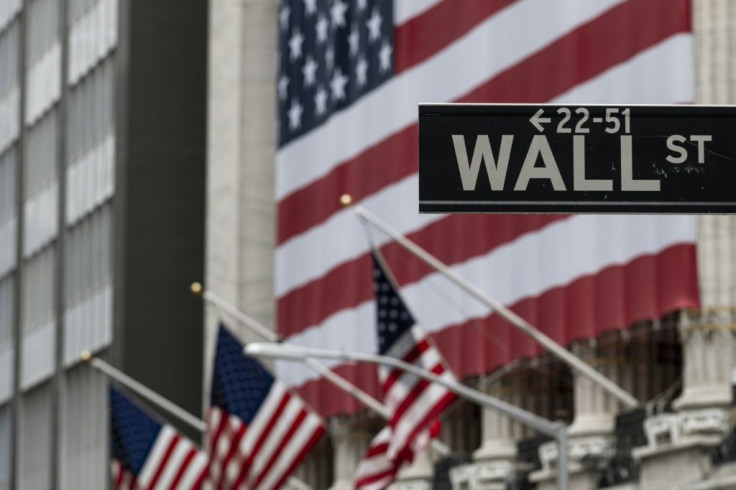Pandemic Delays Arrival Of The Young Wolves Of Wall Street
Some had dreamed of forging alliances that would propel them to the pinnacle of the financial world. Others had already bought their power wardrobes.
But the coronavirus pandemic crippling New York City has thwarted these aspiring corporate climbers -- the interns expecting to train as bankers and traders this summer on Wall Street, temple of global finance.
"I was really excited about... going to the office every day to kind of see what it's like being a banker in New York," says Aristides Bourtsos, 20, a student at the University of Iowa.
Bourtsos will take his first steps this summer as an intern in the investment bank division at JPMorgan Chase, which advises companies on mergers and acquisitions.
But he and hundreds of students from top universities were told in April that, with COVID-19 forcing millions to work from home, their internships would be done remotely.
It's an unprecedented challenge for a finance rookie.
The summer internship is seen as the ticket to a glittering career on Wall Street, which still attracts thousands of young graduates a year despite the scandals.
Candidates are selected several months or even a year in advance.
But for this year's batch of wannabes, the lack of face time will handicap their mission to hammer out the personal contacts that are so often key to promotion and power.
There will be no corporate social culture to dive in to, and little chance to learn the pitfalls which have abruptly halted many a meteoric ascent in the ultra-competitive field, where stars rise and fall at breakneck speed.
Working remotely "it's not like you could just walk up to them in the office, and, you know, you pat them on the shoulder and be like 'hey I need help with this' or 'what is it like being a banker?'," says Bourtsos.
"I think that I will definitely get support from the team -- that much has been confirmed to me by people... but because it's virtual it will be a little harder to build those personal relationships and get help."
The start of his internship has been postponed from June to July, as companies hustle to reorganize and adapt to new health protocols made necessary by the COVID-19 pandemic.
Firms have delayed the start of summer internships this year by an average of two to four weeks, while the initial 10-week duration has been significantly reduced -- in some cases down to five weeks, such as at Goldman Sachs.
There is some consolation: the one thing that hasn't changed is the money.

"Please know that we intend to honor the full financial commitment of your original program duration," Goldman Sachs assured all future trainees outside of India in an e-mail sent on April 7.
There's a lot of uncertainty, explains Brian Richman, professor of finance at the University of Iowa.
"Most of the students are wondering what the internship is going to look like; are they going to learn as much working remotely as they would sort of working in the actual office," says the former banker.
Internships usually conclude with a job offer. But, said Richman, many trainees were questioning whether that will change also.
Citigroup is one of the few institutions to have promised jobs to 2020 interns from its offices in New York, London, Hong Kong, Singapore and Tokyo if they stand out, according to an e-mail seen by AFP.
The New York investment bank Moelis & Co, which has reduced its summer internships to four weeks, is also committed to hiring the 2020 summer interns from 2021 onwards.
But the virus has changed the game, and many feel there are no guarantees.
Michael Gerot, 21, is to train with the merchant bank Evercore in mergers and acquisitions.
"It's kind of hard to plan too far into the future," he conceded. "I'm just kind of focusing on being -- doing the best job I can at Evercore this summer and hopefully that will yield a good result for future plans."
He may be one of the lucky ones -- his chosen field, along with trading, is likely to see a surge in business as the pandemic has undercut many companies, leaving them fragile and potentially as prey for raids or ill-advised mergers.
Gerot, also at the University of Iowa, expects to receive a laptop from Evercore shortly.
He said the company had been "extremely accommodating," going so far as to check he had enough bandwidth and that he did not plan on moving any time soon.
In addition to practical issues, having the interns work remotely also raises questions about computer security and the regulatory obligations of banks, which must monitor the professional communications of bankers and traders to avoid insider trading and market manipulation.
Despite the change in summer plans, Bourtsos says he will still go to New York after his internship, even if the move is later than originally expected.
"As a person who wants to work in finance, New York is the place to be," he said.
© Copyright AFP 2024. All rights reserved.





















